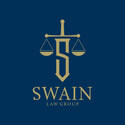Premises Liability

Premises liability refers to the legal responsibility that property owners and occupiers have to ensure that their premises are reasonably safe for visitors. When they fail in this duty, and someone is injured as a result, they can be held liable for the injuries.
Here's a list of some common personal injury areas that fall under premises liability:
Slip and Fall/Trip and Fall: This is perhaps the most common type of premises liability claim. It occurs when a person slips or trips and falls due to a hazardous condition on the premises.
Negligent or Inadequate Security: Property owners may be liable for injuries resulting from criminal attacks on their premises, especially if the attack was foreseeable and the owner failed to take adequate security measures. Examples include assaults in parking lots or shootings in public places.
Overzealous Security: Injuries inflicted by security personnel who use excessive or unnecessary force against visitors or patrons.
Amusement Park Accidents: Rides, food stalls, and other amenities at amusement parks must be safe for visitors. Accidents can result from malfunctioning rides, poorly maintained equipment, or negligent operation.
Swimming Pool Accidents: Pool owners can be held liable for drownings or injuries that occur due to inadequate fencing, lack of lifeguards, or poorly maintained pool areas.
Recreational Water Illness: Illnesses contracted from contaminated water in pools, hot tubs, water parks, or other recreational water sources.
Dog Bites: Owners can be held liable for injuries caused by their pets, especially if the pet has a history of aggression.
Elevator and Escalator Accidents: Malfunctions or poor maintenance can lead to injuries or even fatalities.
Fires: Property owners may be liable for injuries sustained in a fire if it resulted from negligence, such as poor wiring or failure to provide smoke detectors.
Toxic Chemicals and Mold: Exposure to harmful chemicals or mold on a property can lead to various health issues.
Defective Sidewalks or Parking Lots: Uneven surfaces, potholes, or lack of proper maintenance can lead to trip and fall incidents.
Snow and Ice Accidents: Property owners have a duty to remove snow and ice from their premises in a timely manner to prevent slip and fall injuries.
Collapsed Structures: Injuries from falling objects or collapsing structures due to poor maintenance or construction.
Inadequate Lighting: Insufficient lighting can lead to trip and fall accidents or other injuries.
Water Leaks or Flooding: Wet floors or flooding can lead to slip and fall accidents or damage to a visitor’s property.
Staircase Accidents: This can occur due to broken handrails, uneven steps, or lack of adequate lighting.
Playground Accidents: Injuries on playground equipment due to poor maintenance, defective design, or inadequate supervision.
Retail Store Accidents: These can include items falling from shelves, wet floors without warning signs, or other hazards in a shopping environment.
Negligent Supervision of Children: Injuries sustained by children due to a lack of proper supervision in places such as schools, daycares, camps, or recreational facilities.
Hot Beverage Safety: Burns or injuries from beverages that are served at an excessively hot temperature without adequate warning.
Breach of Privacy: Addressing breaches of privacy in hotels, retail stores, and fitness centers where peepholes or concealed cameras are illicitly used for video voyeurism. This surveillance targets patrons in hotel rooms, changing areas, restrooms, locker facilities, and other spaces where individuals rightfully expect privacy.
This list is not exhaustive, but it covers many of the main areas of concern. If you believe that you have a premises liability claim, do not hesitate to contact us to speak with one of our personal injury attorneys who can provide guidance specific to your situation.
Ensuring Invitee Safety on Private Property: Understanding Georgia's Premises Liability Statute
Georgia has a well-established legal framework when it comes to the rights and safety of invitees on another person’s property. One primary legal statute that addresses this issue is O.C.G.A. § 51-3-1. Understanding this provision is vital for both property owners and those visiting their premises.
In the context of Georgia law, an invitee is any individual whom the landowner expressly or implicitly invites onto their property for a lawful purpose. This could range from a customer in a store to a guest at a party. The relationship is typically mutual – the property owner obtains some benefit, whether economic or otherwise, and the invitee gets to use the premises for the intended purpose.
Duty Owed to the Invitee: O.C.G.A. § 51-3-1
The Official Code of Georgia Annotated (O.C.G.A.) § 51-3-1 is clear about the duty of care owed by a landowner (or occupier) to invitees. It states:
“Where an owner or occupier of land, by express or implied invitation, induces or leads others to come upon his premises for any lawful purpose, he is liable in damages to such persons for injuries caused by his failure to exercise ordinary care in keeping the premises and approaches safe.”
In simpler terms, if you invite someone onto your property, you have a duty to exercise ordinary care to ensure their safety. If you fail in that duty, and the invitee suffers an injury as a result, you can be held liable for damages.
What Constitutes ‘Ordinary Care’?
‘Ordinary care’ is a pivotal concept in this statute. Essentially, it refers to the level of care that a reasonably prudent property owner would exercise in similar circumstances. Factors like the nature of the property, the foreseeability of the danger, and the purpose of the visit can all influence what constitutes ‘ordinary care’.
Exceptions and Limitations
While O.C.G.A. § 51-3-1 provides a framework for liability, it’s essential to recognize that there are exceptions. For instance, if an invitee is aware of the hazard, or if the danger is open and obvious, the duty to warn or rectify may be diminished.
Additionally, Georgia follows the comparative negligence rule, meaning if an invitee is partially at fault for their injury, any awarded damages might be reduced proportionally to their share of the blame.
If you have suffered an injury while on another’s premises, it’s essential to be familiar with the duty of care enshrined in this statute. If you believe you have a premises liability claim, do not hesitate to contact us for a free consultation with one of our personal injury attorneys who can provide invaluable insights and guidance specific to your situation.

